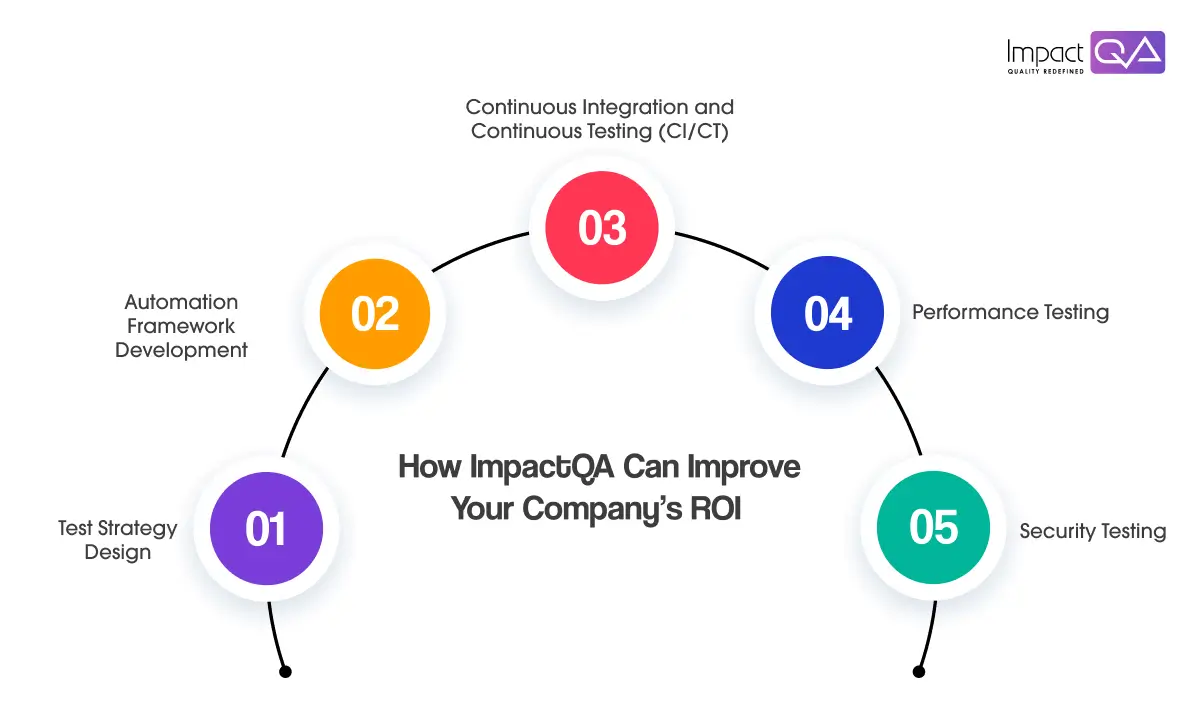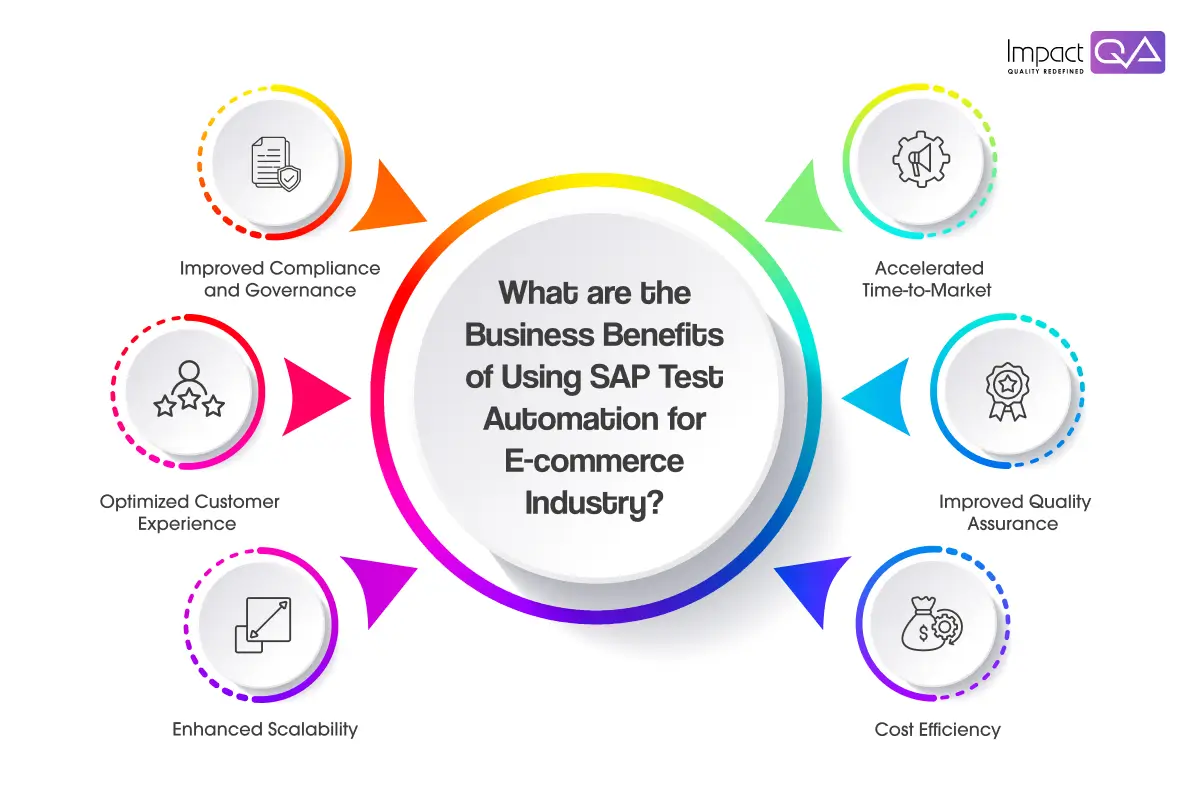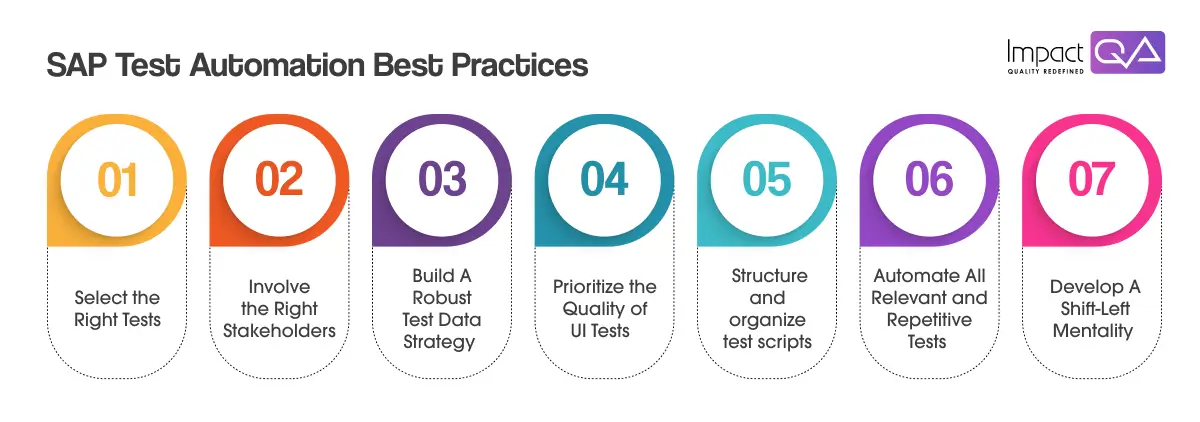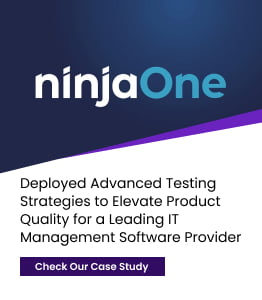Achieving 2x ROI for E-Commerce Industry with SAP Test Automation

Today’s fast-paced digital landscape urges industries to navigate its intricacies through the lens of innovation and growth. The e-commerce industry stands as a beacon leading the change in digital consumer markets. However, with consumer expectations rising and competition intensifying, e-commerce companies must constantly seek ways to enhance operational efficiency, reduce costs, and elevate customer experiences.
SAP is one such solution that emerges as a game-changer with a complex software ecosystem. This underscores the relevance of SAP testing for successful system implementation and integration. Moreover, SAP test automation for the e-commerce industry adds an extra layer of innovation to resolving the prevailing digital challenges. This blog explores how leveraging SAP test automation can not only streamline operations but also deliver a significant return on investment (ROI) for e-commerce businesses. So, let’s dive in to discover how SAP test automation can help improve your business’ ROI by 2x.
Understanding SAP Test Automation for E-Commerce Industry
SAP, the market leader in enterprise application software, provides integrated solutions that manage various business operations, from finance and HR to supply chain and customer relations. Implementing SAP systems is crucial for e-commerce businesses to scale effectively and meet evolving market demands. However, ensuring the reliability and performance of these systems through manual testing alone can be time-consuming, error-prone, and costly.
SAP test automation uses specialized tools and frameworks to automate the testing of SAP applications. This approach accelerates the testing process while improving accuracy and reliability. Automating repetitive tasks enables businesses to release their software faster in the market.
The Business Benefits of E-Commerce
For e-commerce businesses, where every second counts in delivering seamless customer experiences, SAP test automation offers several compelling benefits:
1. Accelerated Time-to-Market
Quick deployment of updates/new features is necessary to stay ahead of the competition. Automated testing reduces the time required for testing cycles, allowing businesses to release enhancements faster without compromising quality.
2. Improved Quality Assurance
Manual testing is prone to human error and may overlook critical issues. Automated tests ensure comprehensive coverage and consistent results, thereby enhancing the overall quality of SAP applications.
3. Cost Efficiency
Automating repetitive testing tasks reduces the need for manual intervention, leading to significant cost savings in terms of labor and resources. Moreover, early detection also reduces downtime and the time needed to retest the solution.
4. Enhanced Scalability
As e-commerce businesses scale operations to accommodate growing demand, SAP test automation facilitates seamless scalability by ensuring that systems can handle increased transactions and users without performance degradation.
5. Optimized Customer Experience
Uninterrupted access to e-commerce platforms is critical for customer satisfaction. Automated testing helps identify bugs early on and resolve issues proactively, contributing to a smooth and reliable user experience.
6. Improved Compliance and Governance
Automated tests ensure adherence to regulatory requirements and industry standards, mitigating risks associated with non-compliance.
ImpactQA Assists You in Achieving 2x ROI with SAP Testing

Return on Investment (ROI) is the greatest measure of how well an investment is made. When applied effectively, SAP test automation can yield a remarkable return on investment for e-commerce businesses. Here is how our testing and QA expertise can help you optimize your operations and improve your company’s ROI manyfold:
- Test Strategy Design: ImpactQA collaborates with e-commerce businesses to develop comprehensive test strategies specifically tailored for SAP environments. This includes identifying critical test scenarios, defining automation frameworks, and integrating automated testing into the SDLC (Software Development Life Cycle).
- Automation Framework Development: We develop custom automation frameworks that are optimized for SAP applications. These frameworks ensure efficient test execution, minimize manual intervention, and enhance test coverage across different SAP modules relevant to e-commerce operations.
- Continuous Integration and Continuous Testing (CI/CT): ImpactQA integrates automated tests into CI/CD pipelines, facilitating continuous testing of SAP updates and enhancements. This ensures that new functionalities are thoroughly tested before deployment, thereby reducing risks associated with software changes in e-commerce platforms.
- Performance Testing: Beyond functional testing, we conduct performance testing to validate the scalability and responsiveness of SAP-driven e-commerce applications. This includes load testing, stress testing, and scalability assessments to ensure that the system can handle peak loads and deliver optimal performance under various conditions.
- Security Testing: Our testing experts employ robust security testing methodologies to identify vulnerabilities within SAP environments. This proactive approach helps e-commerce businesses safeguard customer data, protect against cyber threats, and maintain compliance with industry regulations.
SAP Test Automation Best Practices
SAP systems have been changing the game for ERP software across all industries. As a result, SAP has gained its reputation as a leader in enterprise solutions offering not just efficient software but also the ability to tailor them to a company’s specific project needs.
It’s no wonder that SAP implementations can get complex and time-consuming considering the time and team efforts taken to manually test the whole ecosystem. The best alternative to these manual implementations and testing efforts is an exceptional test automation strategy. Mentioned below are some best practices to ensure a smoother and faster SAP implementation:
1. Are You Selecting the Right Tests?
Efficient test automation relies on strategic test selection. As test suites expand, so does the effort, cost, and time required for maintenance, especially in the case of SAP’s intricate applications. Here are some best practices to follow while conducting test selection:
- Prioritize tests offering comprehensive coverage with minimal effort and time.
- Choose tests on the basis of high risk and impact.
- Develop precise, targeted test scripts tailored to specific changes.
2. Make Sure the Right Stakeholders are Involved
For the success of any project, it is crucial to engage all the right stakeholders affecting and getting affected by the project. User resistance is a major factor leading to the failure of ERP implementations. Consequently, engage all relevant stakeholders —business users, analysts, developers, and testers — in creating and maintaining your SAP test automation undertakings. This not only ensures comprehensive test coverage of business scenarios, equipping testing teams with a thorough understanding of project requirements and objectives from the outset but also ensures that the final user of the software can adopt the technology without any lashback.
3. Build A Robust Test Data Strategy
Successful SAP Test Automation projects require a well-defined Test Data Strategy. SAP’s test data requirements often involve hidden dependencies. Key considerations include:
- Detailed assessment of data needs and classification.
- Utilization of appropriate tools and technologies.
- Adherence to privacy regulations.
- Incorporation of synthetic, queried, and static test data to address diverse scenarios and requirements.
4. Prioritize the Quality of UI Tests
Instead of focusing solely on increasing the number of automated test cases, emphasize creating high-quality, maintainable UI test cases that enhance risk coverage. It is crucial to ensure the conversion of manual test cases to automated ones only once their quality and relevance are established.
5. Test Scripts Maintenance
Ensure test scripts are easily maintainable by:
- Defining clear objectives.
- Structuring and organizing test scripts effectively.
- Providing comprehensive documentation for clarity and ease of understanding.
- Involving team members in script review for continuous improvement.
- Regularly updating and monitoring test scripts to align with evolving system requirements and SAP updates.
6. Automate All Relevant and Repetitive Tests
Comprehensive automated testing should encompass both end-to-end scenarios and individual component tests. End-to-end tests validate overall system stability and functionality, while component tests ensure the correct functioning of individual units. Integrating these tests ensures thorough coverage and reliability of the tested system. Additionally, automating repetitive tasks and tests is the biggest benefit offered by test automation, reducing manual efforts manyfold.
7. Develop A Shift-Left Mentality
Shift-left methodology states that the testing processes must be incorporated in the software development lifecycle (SDLC) simultaneously. This methodology emphasizes running tests as many times and as early as possible on the software being developed or implemented. Running tests during development phases ensures the reliability and robustness of test automation when most critical, reducing the risk of hidden bugs or system issues post-go-live.
Conclusion
In conclusion, SAP test automation for the e-commerce industry represents a transformative opportunity for businesses looking to optimize their SAP investments and achieve sustainable growth. By embracing automation, organizations can not only enhance operational efficiency and reduce costs but also deliver superior customer experiences that drive loyalty and revenue.
By harnessing the power of SAP test automation, e-commerce businesses can pave the way for a future where innovation thrives, customers are delighted, and ROI exceeds expectations.
ImpactQA empowers e-commerce businesses to harness the full potential of SAP test automation. Our specialized expertise ensures that SAP applications are thoroughly tested for quality, performance, and security, paving the way for sustained business growth and innovation in the dynamic e-commerce marketplace.







